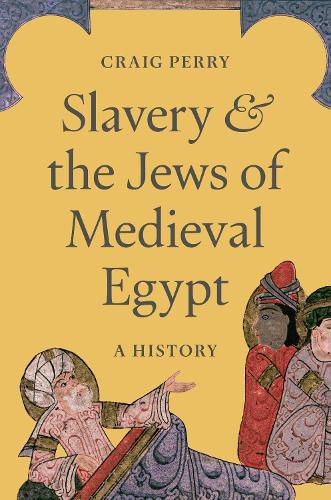Readings Newsletter
Become a Readings Member to make your shopping experience even easier.
Sign in or sign up for free!
You’re not far away from qualifying for FREE standard shipping within Australia
You’ve qualified for FREE standard shipping within Australia
The cart is loading…






A new global history of the slave trade, the lives of enslaved people, and the role of slavery in the formation of Jewish and Arab-Islamic culture in the medieval Middle East
In this book, Craig Perry mines a remarkable cache of fragmentary documents preserved in an Egyptian synagogue to write a new history of slavery and the slave trade in the medieval Middle East. These documents-which range from the everyday correspondence of traveling merchants to legal queries sent to Jewish jurists-provide the richest surviving archive for the social history of slavery during the centuries when Cairo was an imperial and commercial capital at the intersection of the Mediterranean and Indian Ocean worlds. Perry draws on this archive, known as the Cairo Geniza, to shed new light on such crucial topics as the slave trade in state diplomacy, the entanglements of gender and household slavery, and the lives of the enslaved.
Perry chronicles a protean slave trade that trafficked enslaved people from Europe, Africa, and India to the Egyptian market. His account cuts across different scales of analysis, from the macro-level of imperial rule to the micro-level of the family kitchen. Along the way, he upends the traditional story of Passover; medieval Jews, he writes, could explain slavery to their children by pointing to the enslaved people who served the holiday meal. When freed, some former slaves converted to Judaism and became the parents of Jewish children. Perry's narrative reveals a world, long hidden from historians, in which enslaved people made their way through the alleys of Cairo, toiled in the workshops of apothecaries, and found ways to evade the surveillance of their owners. With this book, Perry writes enslaved people into the social and economic life of medieval Islamic society.
$9.00 standard shipping within Australia
FREE standard shipping within Australia for orders over $100.00
Express & International shipping calculated at checkout
Stock availability can be subject to change without notice. We recommend calling the shop or contacting our online team to check availability of low stock items. Please see our Shopping Online page for more details.
A new global history of the slave trade, the lives of enslaved people, and the role of slavery in the formation of Jewish and Arab-Islamic culture in the medieval Middle East
In this book, Craig Perry mines a remarkable cache of fragmentary documents preserved in an Egyptian synagogue to write a new history of slavery and the slave trade in the medieval Middle East. These documents-which range from the everyday correspondence of traveling merchants to legal queries sent to Jewish jurists-provide the richest surviving archive for the social history of slavery during the centuries when Cairo was an imperial and commercial capital at the intersection of the Mediterranean and Indian Ocean worlds. Perry draws on this archive, known as the Cairo Geniza, to shed new light on such crucial topics as the slave trade in state diplomacy, the entanglements of gender and household slavery, and the lives of the enslaved.
Perry chronicles a protean slave trade that trafficked enslaved people from Europe, Africa, and India to the Egyptian market. His account cuts across different scales of analysis, from the macro-level of imperial rule to the micro-level of the family kitchen. Along the way, he upends the traditional story of Passover; medieval Jews, he writes, could explain slavery to their children by pointing to the enslaved people who served the holiday meal. When freed, some former slaves converted to Judaism and became the parents of Jewish children. Perry's narrative reveals a world, long hidden from historians, in which enslaved people made their way through the alleys of Cairo, toiled in the workshops of apothecaries, and found ways to evade the surveillance of their owners. With this book, Perry writes enslaved people into the social and economic life of medieval Islamic society.